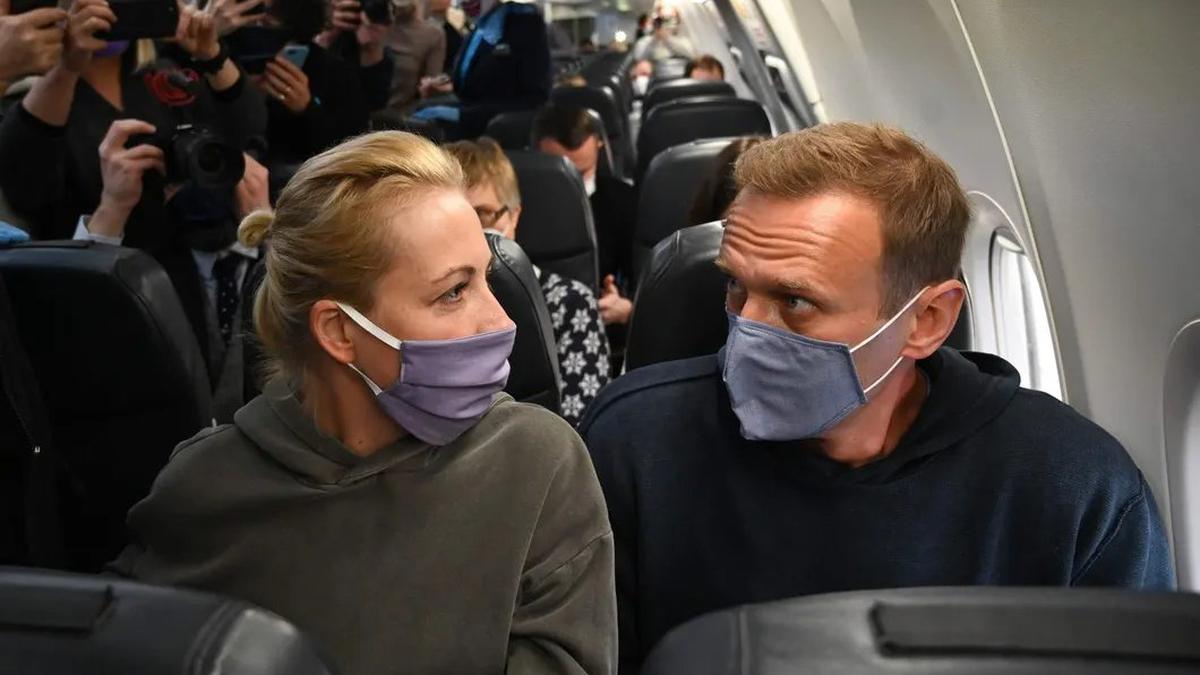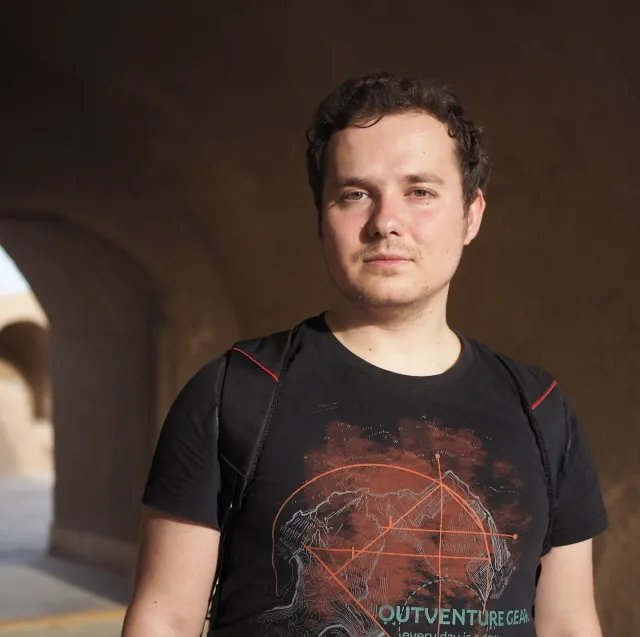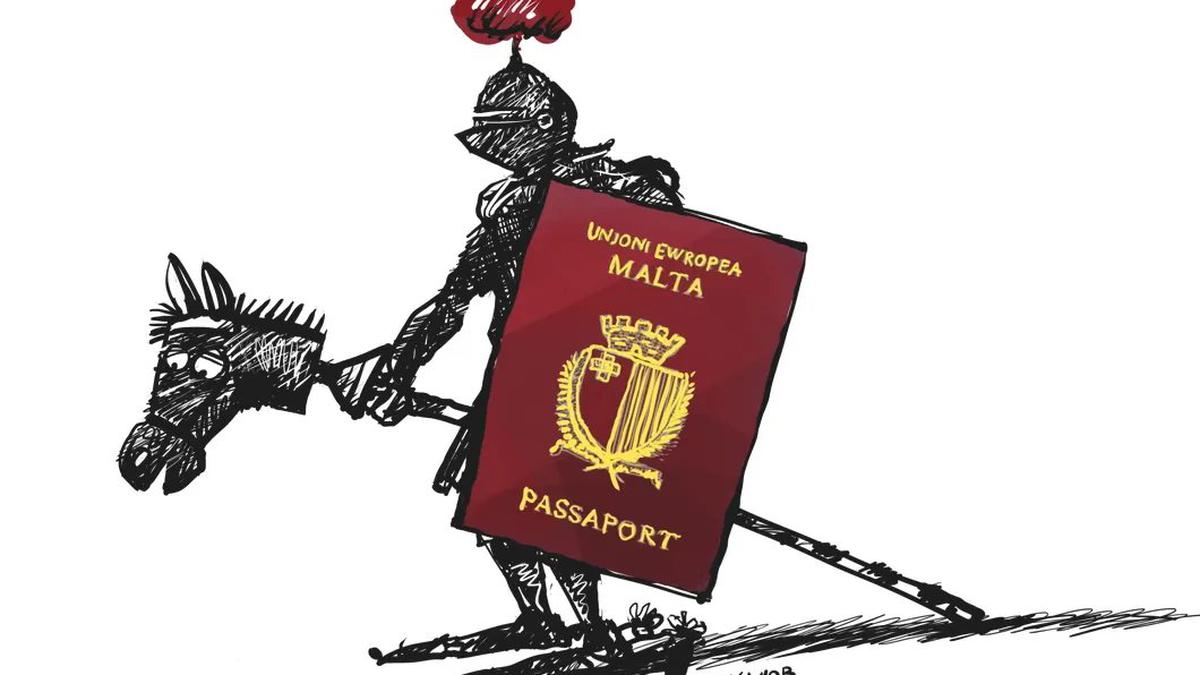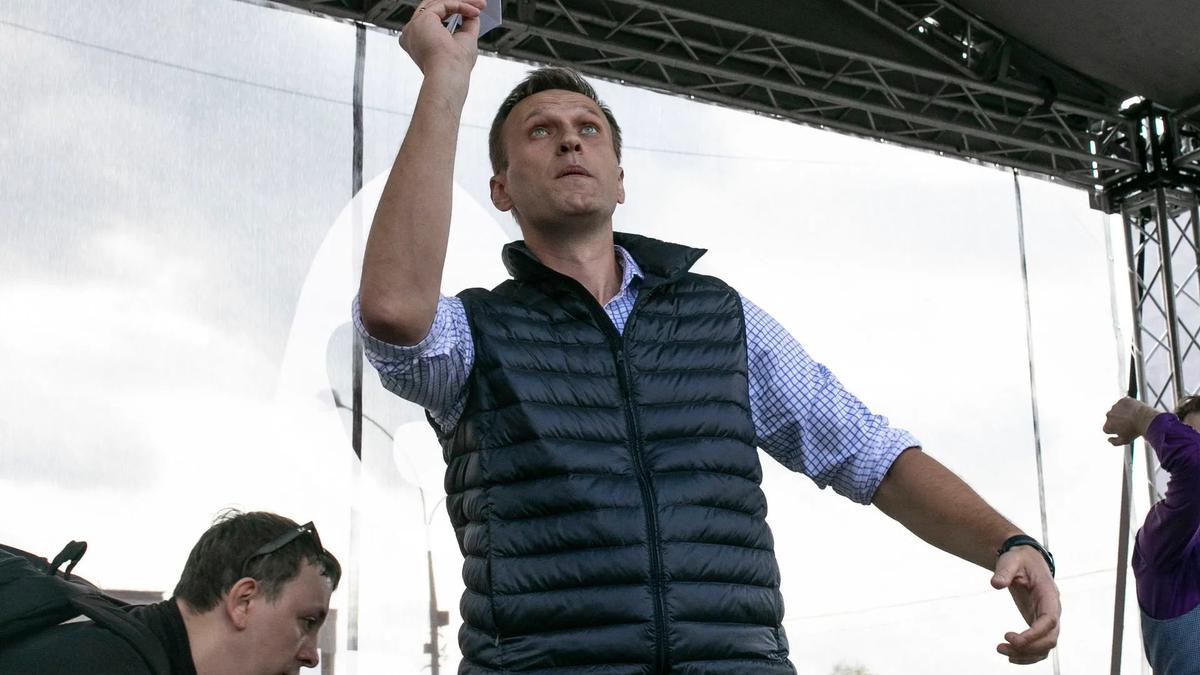This Week’s Highlights
The tumultuous return of opposition leader Alexei Navalny to Russia takes over global headlines, but what does the Russian public think of the standoff? We feature our finest commentary this week; a data analysis exposes that Russian officials are claiming to vaccinate far more people than they really are; plus, more high-profile Russians are revealed to be holders of the EU’s ‘golden passports.’
Want to get the full story? Click the links below for full-length articles in Russian.
Russians React to Navalny’s Return

After being poisoned in August and evacuated to Germany for medical care, opposition leader Alexei Navalny boarded a flight to Russia on Sunday. He was immediately arrested upon landing at the airport.
WHY GO HOME? Some Russian observers have pointed out that Navalny could have easily continued his anti-corruption investigations and political activism from the safety of Germany without seeing his domestic support collapse. Many argue that it is inexplicable why Navalny would choose to go home when he is almost certainly going to give up his freedom, his comforts, and perhaps even his life. But all agree that it was definitely a spectacular political move.
“One of the main reasons for Navalny's return is this: the Kremlin loves to take hostages here. As the crisis grew, authorities would have imprisoned more activists,” argues our columnist Yuliya Latynina. _“Navalny, it would seem, didn't want to sit things out abroad while in Russia they tortured his people.” _
THIS WILL CHANGE RUSSIAN POLITICS. On the other hand, the more time Navalny would spend in foreign self-exile, the less politically relevant he would be back home. So political stunt or an act of political self-preservation, Russian independent commentators agree that Navalny’s return to Russia will be a massive game-changer for the country’s political culture, but also for its geopolitical standing.
“The fate of the head of Navalny's regional offices will not be a topic of negotiations between Putin and Merkel. And it doesn't affect the fate of the Nord Stream 2 pipeline,” Latynina adds. _“By offering himself up as a hostage, Navalny has sharply raised the stakes. His fate will certainly become the subject of negotiations between the Kremlin and the West.” _
PUTIN FACES HIS FIRST SERIOUS CHALLENGER. There is a fundamental political message behind Navalny's decision to return, argues our political editor Kirill Martynov. Throughout the years, the Kremlin has taught Russians to think that the only political actor in the country is the Kremlin itself. When the authorities act, everyone else must comply or suffer. Navalny’s actions defy this logic by asserting his agency despite the odds. His return breaks the ties of the country’s political culture.
_“As a free person and a citizen of a great country, Navalny demonstrates that he is able to determine his own destiny, without hints from his superiors and the help of his ‘senior comrades,’” _Martynov argues in this week’s column.
A TRUMPED UP INVESTIGATION Russian authorities have refused to investigate the circumstances around Navalny’s poisoning, and signaled that they would much rather that he didn’t return to Russia. Meanwhile, they have opened up a bogus fraud investigation into funds that citizens donated to Navalny’s Anticorruption Foundation. The campaign of repression continues, but many Russian refuse to buy into the Kremlin’s version of events.
“There are others across Russia who, like Navalny, are willing to express their agency, albeit with fewer personal risks,” writes Martynov in his column. _“There are now thousands of them across the country. They are physicians for whom professional honor is more important than their careers, teachers who are not willing to participate in forgeries, journalists who refuse to spread propaganda, and volunteers who will not abandon their cause because of the threat of being named a 'foreign agent.'” _
BACKSTORY. Navalny's supporters believe that one of the reasons he may have been poisoned was to get him out of the way during local elections in September 2020. On September 13th, Russians voted for heads of 13 out of 85 regions. Navalny had been touring around the country promoting the "Smart Voting" strategy that deploys a coordinated protest vote to prevent the ruling United Russia Party from winning. This highly successful campaign made him a threat to the Kremlin. Russia hasn’t had free, fair, and transparent elections since at least 2004. We’ve been reporting on forced and coerced voting, mass ballot stuffing, voter intimidation, and a lack of transparency in the vote counting process for years. Navalny’s poisoning is also part of a pattern. Numerous Kremlin critics and Russian dissidents have fallen ill or been killed by poison.
Read Kirill Martynov’s analysis of Navalny’s decision to return to Russia here , and Yulia Latynina’s column here .

Inflated Vaccination Data, Exposed
Russia’s Minister of Health claims that the government has already administered more than 1.6 million Sputnik-V jabs since the rollout of the vaccination campaign in early December. An independent data analysis, however, shows that the government is inflating the numbers.
INFLATING X 5. Independent marketing expert Alexander Dragan started to doubt the official numbers and opted to do his own calculations. As a result, Dragan found that the Ministry of Health was claiming that the number of vaccines administered was around 5 times higher than the real amount. Our data investigative unit corroborates the findings.
Поддержите
нашу работу!
Нажимая кнопку «Стать соучастником»,
я принимаю условия и подтверждаю свое гражданство РФ
Если у вас есть вопросы, пишите [email protected] или звоните:
+7 (929) 612-03-68
MATH BEHIND THE EXPOSE. Dragan and our data unit took the official number of vaccinated Russians — 1,6 million — and cross-checked it with publicly-available data from vaccination centers in 67 regions covering 90% of the Russian population. The final tally doesn’t add up. The data fact-check suggests that only approximately 156,00 Russians got Sputnik-V jabs as of late December (+/- 20,000). A second fact-check in mid-January covered 44 regions and 59% of the population, but also came short of the official number — up to 290,000 vaccinated tops.
INFLATED NUMBER COVERS UP THE VACCINE SHORTAGE. Russian Ministry of Health claims that there are still 100,000 vaccine doses available for the country‘s regions. Nevertheless, local governments had reportedly suspended their vaccination campaigns due to a shortage. The government is struggling with a severe Sputnik-V supply crisis, as we reported earlier. So the inflated number is another example of Russia’s misinformation regarding the vaccine and the number of coronavirus cases more generally. It is also indicative of public fears over the quality of the Russian vaccine and the secrecy surrounding the production.
“In most regions, it is very difficult to get access to the vaccine. Most people do not have the opportunity to get vaccinated.But this, like production and logistics, is a solvable problem. I have no doubt that sooner or later these issues will all be resolved,” Dragan told our correspondent Irina Tumakova. _“Much more important is another impediment to the vaccination campaign: people's unwillingness to get vaccinated. This too can be divided into several problems: First, the general growth of anti-vaccine sentiments and the emergence of various kinds of conspiracy theories. Second, people's distrust of a particular vaccine, of the speed of its development, and the early completion of clinical trials,” _he continued.
BACKSTORY. Faulty Covid-19 data has been a consistent problem throughout the pandemic. Russia had one of the largest Covid-19 outbreaks globally, but Novaya Gazeta initially found relatively reliable data for the number of cases in only about 10 regions, most of them with low infection rates. Our data analysis unit looked at other indicators to assess the severity of the epidemic, for example, whether the number of online searches for coronavirus-related symptoms has risen. Meanwhile, officials didn’t release the real number of Covid-19-related deaths either. We’ve examined over a decade of data from Moscow’s municipal registry office and spoke with independent experts for our latest data journalism investigation. It exposes Russian officials severely underreporting the coronavirus death toll. What’s more, Russia only attributes a fatality to COVID-19 if a patient died directly from the infection. This is in contrast to the US, for example, which tallies the deaths of everyone who tested positive for coronavirus.
Read our interview with Alexander Dragan here .
Russians with ‘Golden Passports’ in the EU, Revealed

Several months after Malta officially called off its ‘golden passport’ scheme — through which wealthy foreigners could obtain a passport by making a substantial investment in the country — Maltese officials revealed some of the names of those who benefitted from the program. Our investigative correspondent Vladimir Prokushev analyzed the list and found some notable Russians on it.
THE SCHEME BRED LARGE-SCALE CORRUPTION. The program first launched in 2013. In order to obtain the coveted ‘golden passport,’ people needed to contribute 650,000 euros to a special fund known as the Malta Development Fund. Another 25,000 euros had to be contributed for spouses and underage children. The scheme allowed Malta to go from having a budget deficit to a surplus in just a few years, earning €850 million between 2014 and 2020. But Maltese ‘golden passports’ were also a major facilitator of corruption and money laundering. A Maltese journalist Daphne Caruana Galizia was investigating this corruption when she was killed by a bomb planted in her car. A report from the The Financial Intelligence Analysis Unit, a government agency established in Malta to prevent corruption, also estimates that three Russian citizens with Maltese passports — Irina Orlova, Evgeny Filobokov, and Viktor Vashkevich — paid around $206,725 in bribes to Maltese officials, alone.
WHO IS ON THE LIST? Of the roughly 3,000 people who obtained golden passports from Malta, at least 300 are from Russia and the former Soviet Union. Among the Russians on the list are Raisa Demina, chairman and founder of the major meat processing company Velcom, the multimillionaire Sergey Kolesnikov, who fell out of favor with Putin for his anti-corruption activities, the former leader of the Amur region, Leonid Korotkov, the co-founder of the Russian development group LSR, Georgy Vedernikov, and five of his relatives, among others. The list also includes a few billionaires, like the family members of the former head of the state oil monopoly Rosneft, Sergey Bogdanchikov, and the agro-magnate Alexey Smirnov.
“Entire families of wealthy Russians appear on the new list published by the Maltese authorities, in addition to well-known Russian entrepreneurs. Businessmen from remote regions of Russia are increasingly revealed to be the owners of Maltese passports,” our correspondent Vladimir Prokushev writes.
THE END FOR EU HIDEAWAYS OF RUSSIAN OLIGARCHS AND KLEPTOCRATS IS NEAR? In 2019, the European Commission slammed the ‘golden passport’ and ‘golden visa’ programs by EU states for facilitating money laundering, corruption, and tax evasion. That was when the Cypriot authorities decided to cancel the program, and they even revoked the passports of 26 foreigners suspected of committing financial crimes or having suspicious ties to foreign governments. Of the 26, it was reported that nine of the passports belonged to Russians. One of them belonged to aluminum magnate and Kremlin ally Oleg Deripaska.
BACKSTORY. Some European countries, in particular Malta and Cyprus, have attracted billions of dollars by offering residence permits, and in some cases passports, to foreigners in exchange for investments in those countries. Oligarchs and corrupt officials have taken advantage of these schemes, and thousands of Russians are believed to have invested in Cyprus (and across the EU) to either launder ill-gotten gains or avoid paying taxes. It was only this year that Cyprus, like Malta, opted to scrap the controversial policy. Instead of trying to convince Russian oligarchs to invest their money at home, Russia has floated the idea of implementing its own golden passports scheme.
Read our correspondent’s deep dive into the Russian who obtained Malta’s golden passports here .
Other Top-Stories Russia Has Been Reading
● MYSTERIOUS DEPORTATIONS
One of our most-read stories this week is about the Russian government kicking out foreigners it has deemed to be a ‘threat’ to Russia. Of course, the authorities don’t have to provide any real evidence of this threat, and they often base their decisions on ‘classified information.’ The Ministry of Internal Affairs can decide to annul a residence permit. Sometimes they rely on previous decisions coming out of the Federal Security Service (FSB), but sometimes not. The decision-making process is opaque, and it is nearly impossible to appeal these decisions. We took a look at the data and found that less than 20 percent of the people kicked out of the country knew why the decision was made. Meanwhile, our journalists looked at the cases and found that migrants who have been openly critical of the government are at a higher risk of being deported arbitrarily.
● A TEACHER OR A FOREIGN AGENT
Another popular story this week is about a teacher of Russian language and literature who has been added to the government’s foreign agents list. In her free time, Daria Apohonchich was also an advocate against domestic violence. Daria found out about her new status as a foreign agent by accident. She spent the entire month of December at home quarantining with her children, when on December 28 a friend called to tell her the news. “This was very surprising to me,” she told Novaya Gazeta. _“But my name appeared around the same time they called the Nizhny Novgorod Women's Crisis Center a foreign agent and Violence.net, which helps women, was also recognized as a foreign agent. I give lectures and organize festivals and exhibitions on the topic of women's rights and violence, not only domestic violence. The state is apparently intimidated just by conversations about violence.” _
Поддержите
нашу работу!
Нажимая кнопку «Стать соучастником»,
я принимаю условия и подтверждаю свое гражданство РФ
Если у вас есть вопросы, пишите [email protected] или звоните:
+7 (929) 612-03-68
